The Nursing Home Law Center is committed to providing the legal resources necessary to hold negligent facilities accountable.
West Virginia Nursing Home Abuse Lawyer

Licensed in West Virginia
Nursing home abuse is a deeply concerning issue that affects vulnerable residents in West Virginia nursing homes and beyond. Families trust nursing home facilities to provide safe environments and proper care for their loved ones. Unfortunately, this trust is sometimes broken.
For family members, the discovery of a loved one’s suffering can be heartbreaking and overwhelming, leaving them unsure of how to proceed. This situation is where an experienced West Virginia nursing home abuse lawyer becomes invaluable.
A nursing home abuse attorney can help identify signs of abuse, hold responsible parties accountable, and guide families through the legal process to recover compensation for the harm caused. This specialized guidance is vital in the state capital, where complex legal proceedings require a deep understanding of local court systems. If a loved one in Kanawha County has suffered from negligence, a Charleston, WV Nursing Home Abuse Lawyer can provide the necessary legal pressure to ensure the facility is held to the highest standards of care.
Why Hire Nursing Home Law Center
At Nursing Home Law Center, we are dedicated to helping victims of nursing home abuse seek justice and compensation. Our experienced nursing home abuse lawyers have a strong track record of handling such cases with care and achieving substantial settlements and verdicts for our clients.
We take a comprehensive approach to every case, thoroughly investigating all aspects of the abuse. Our investigation addresses damages such as medical bills, emotional pain, and other hardships. With extensive knowledge in handling nursing home abuse claims, we work diligently to build a strong case and fight to protect your rights.
Throughout the legal process, we prioritize clear communication and compassionate support to ensure you and your family feel informed, secure, and confident as we work together to pursue justice for your elderly loved one. Our firm is dedicated to serving families along the Ohio River who have been betrayed by the very institutions meant to protect their seniors. Partnering with a Huntington Nursing Home Abuse Lawyer allows families to effectively investigate claims of staffing shortages or physical mistreatment and pursue the maximum compensation allowed under West Virginia law.
Types of Cases Handled by Our West Virginia Nursing Home Abuse Lawyers
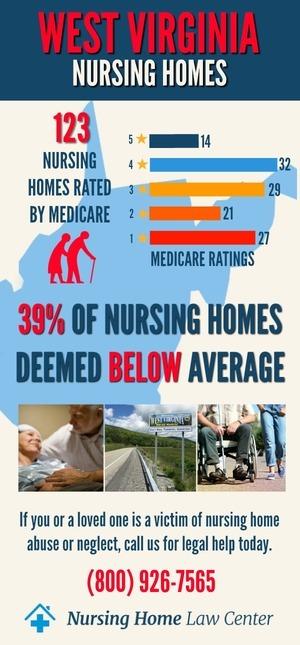
Nursing home abuse occurs when residents suffer harm through intentional actions, neglect, or exploitation. These acts can lead to severe physical, emotional, and financial harm and, in some cases, wrongful death.
At Nursing Home Law Center, our experienced West Virginia nursing home abuse lawyers handle a wide range of cases to hold responsible parties accountable.
Physical Abuse
Physical elder abuse involves the use of force that causes injury, pain, or trauma to a nursing home resident. This assault includes hitting, pushing, or shaking residents, as well as the improper use of restraints to restrict movement.
Mental and Emotional Abuse
Mental and emotional elder abuse harms the psychological well-being of residents through verbal attacks, threats, or humiliation. Examples include yelling at or isolating residents, which can severely impact their psychosocial well-being.
Sexual Abuse
Sexual elder abuse refers to any unwanted or non-consensual sexual activity involving a nursing home resident.
Medical Malpractice
Medical malpractice in nursing facilities occurs when medical professionals or caregivers fail to provide appropriate treatment, harming residents. Common examples include bed sores caused by improper repositioning and medication errors, such as administering the wrong dosage or ignoring signs of infection.
Negligence
Nursing home neglect is the failure of facilities to meet residents’ basic needs, such as hygiene, nutrition, or safety. This negligence can lead to poor hygiene, malnutrition, dehydration, or residents wandering away from the facility (elopement).
Financial Abuse
Financial abuse involves exploiting a resident’s assets or funds. This exploitation may include stealing money, forging signatures, or pressuring residents to alter financial documents.
Wrongful Death
If nursing home negligence or abuse results in the untimely death of a resident, it is considered wrongful death. These cases often involve severe neglect, such as untreated illnesses, malnutrition, or injuries from physical assault. Surviving family members can pursue a nursing home lawsuit to hold the facility accountable for their loved one’s death.
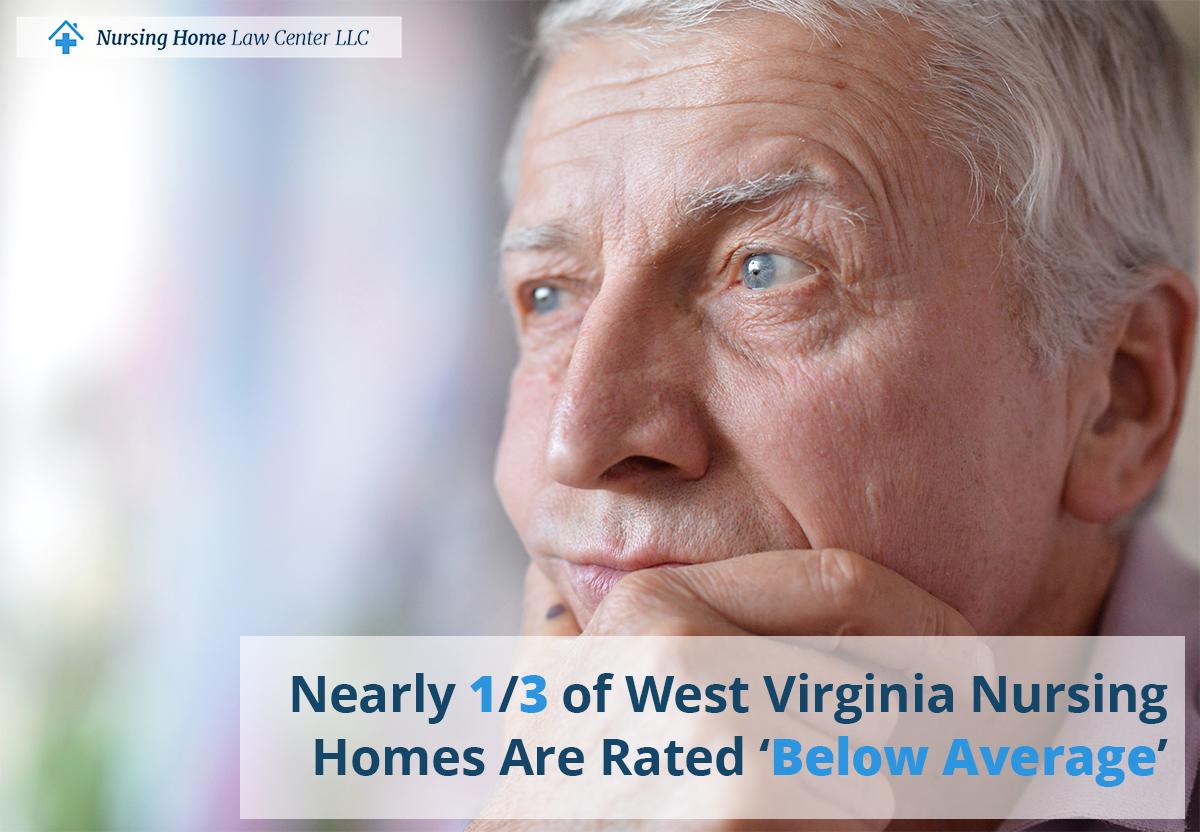
Understanding Your Legal Rights
Nursing home residents in West Virginia are protected under federal and state laws that ensure their safety, dignity, and access to proper care. These laws establish strict standards for nursing homes and provide legal avenues for holding facilities accountable when they fail to meet their responsibilities.
One of the most significant federal laws protecting nursing home patients is the Nursing Home Reform Act of 1987. This law mandates that all residents are entitled to:
- A safe and abuse-free environment
- Adequate medical care and attention to their physical, emotional, and psychosocial well-being
- Freedom from physical abuse, sexual abuse, neglect, and unnecessary restraints
- The ability to make decisions about their care and voice complaints without fear of retaliation
West Virginia provides additional protections for elderly individuals in nursing home facilities.
The West Virginia Department of Health and Human Resources oversees nursing home standards and ensures compliance with care and safety regulations. Residents and their family members can report concerns to state agencies or Adult Protective Services for investigation and intervention.
Facilities are required to uphold high standards of care, and any failure to meet these obligations, such as nursing home negligence or financial exploitation, can lead to liability under federal and state law. Enforcing these rights is particularly important in the Monongalia County area, where the density of long-term care facilities can lead to oversight gaps. A Morgantown Nursing Home Abuse Lawyer can help you navigate the investigative process and hold administrators accountable when their failure to supervise staff results in serious resident injury.
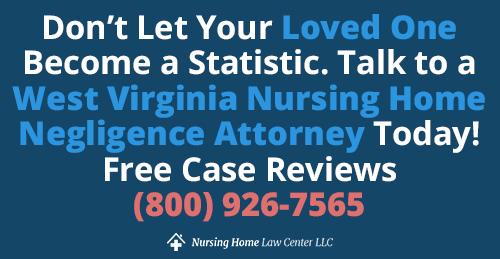
Eligibility to File a Nursing Home Abuse Claim
If a resident has suffered abuse, neglect, or injury in a West Virginia nursing home, several parties may have the right to file a claim:
- The nursing home patients themselves, if they are capable of making legal decisions
- A legal guardian or individual with power of attorney acting on behalf of the resident
- A family member, particularly in cases involving severe harm, wrongful death, or situations where the resident cannot act independently.
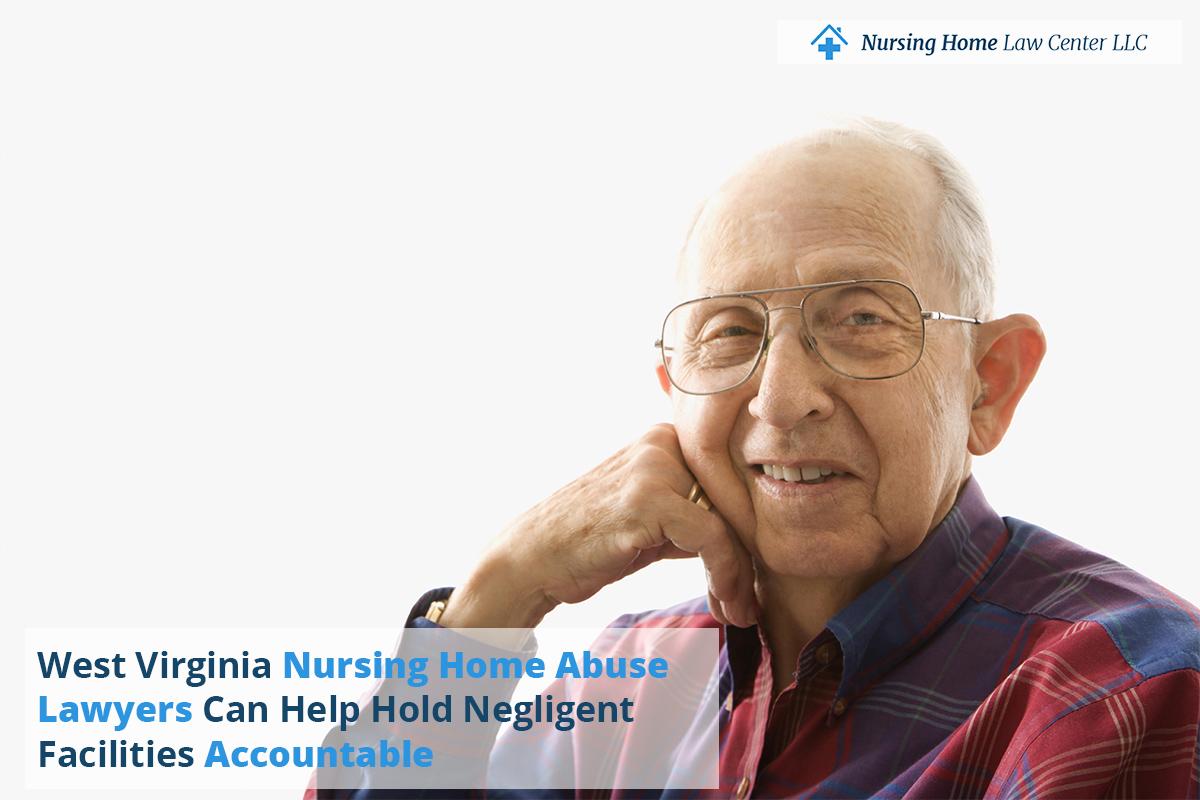
How Our West Virginia Nursing Home Abuse Attorneys Can Help
At Nursing Home Law Center, we are dedicated to advocating for victims of nursing home abuse and their families. With years of experience handling nursing home abuse cases, we understand the devastating impact abuse, neglect, and exploitation can have on nursing home patients and their loved ones.
Our attorneys are committed to holding West Virginia nursing homes accountable for their failures and helping families recover the compensation they deserve. This commitment extends to providing localized legal support for residents in Wood County who have been harmed by facility misconduct. Working with a Parkersburg Nursing Home Abuse Lawyer ensures that your case is handled with a focus on regional court procedures and that all evidence of neglect is professionally documented to build the strongest possible claim for your family.
Here’s how our West Virginia nursing home abuse lawyers can assist you:
Free Case Evaluation
We offer a free case review to discuss your concerns and evaluate the details of your situation. During this consultation, a West Virginia nursing home neglect lawyer will answer your questions, explain your legal rights, and outline potential next steps. This initial step is designed to give you clarity and confidence in pursuing justice for your elderly loved one.
Case Investigation
Our nursing home abuse lawyers conduct a thorough investigation into the abuse or neglect. We gather evidence such as medical records, witness statements, and facility reports to identify patterns of misconduct or nursing home negligence.
Whether the issue involves bed sores, medication errors, or financial exploitation, we build a solid case to hold all responsible parties accountable.
Filing the Claim
Once we’ve gathered the necessary evidence, we file a nursing home lawsuit on behalf of the victim. This process involves submitting all legal documents, ensuring compliance with West Virginia’s statute of limitations, and identifying every liable party, including medical staff, administrators, or corporate owners.
Settlement Negotiation
Many nursing home abuse cases are resolved through settlement negotiations. Our law firm works to secure a fair settlement that compensates for medical bills, emotional distress, and other damages. We are skilled negotiators who won’t accept less than what your case is worth, ensuring the outcome reflects the harm your loved one has endured.
Trial Representation
If a fair settlement cannot be reached, we will represent you in court. Our attorneys have extensive trial experience and will present a compelling case to a judge or jury. We fight tirelessly to ensure that the responsible parties are held fully accountable for their actions.
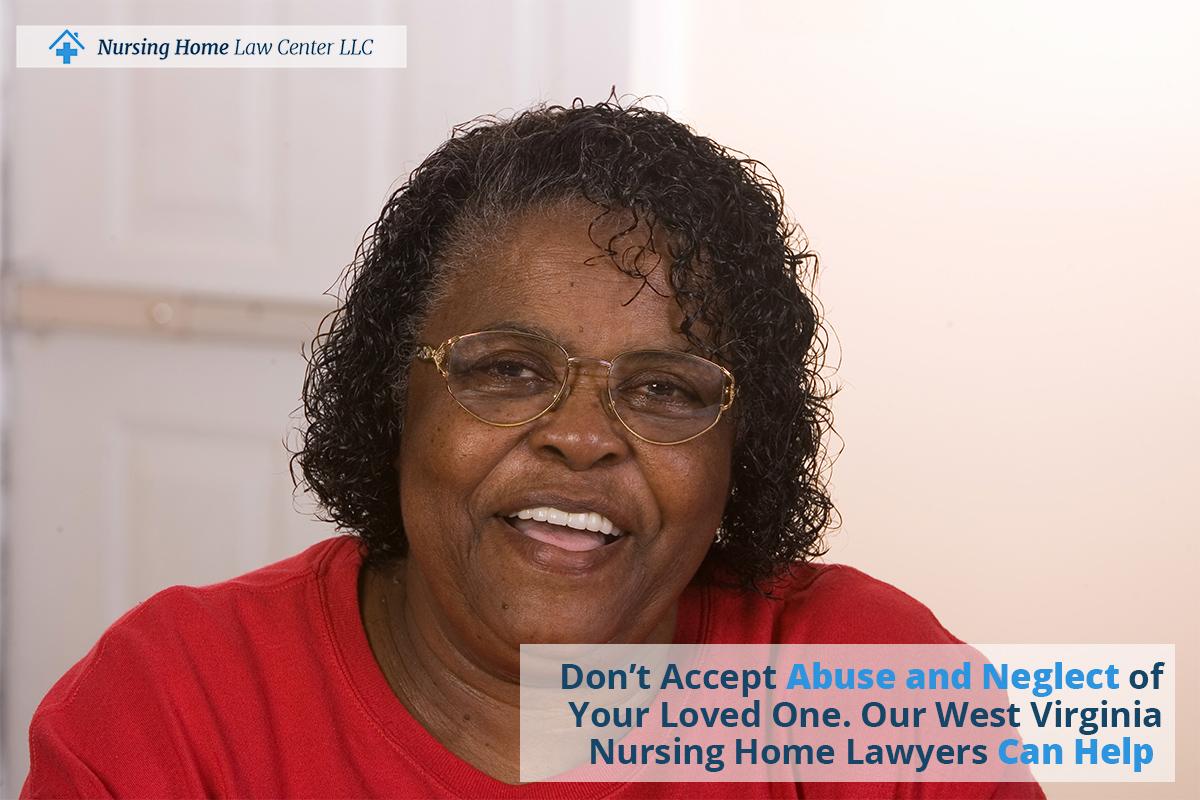
Common Signs of Elder Abuse Among Nursing Home Residents
West Virginia has 123 Medicare-approved nursing facilities, but many fail to provide quality care. Sixty-five nursing homes (53%) received an overall rating of below average or much below average, which indicates widespread concerns regarding the standards of care provided to residents across the state.
Fifty-seven facilities (46%) scored poorly in health inspections, suggesting that nearly half of the state’s nursing homes struggle to maintain safe and compliant environments. Staffing is another critical concern, as 71 nursing homes (58%) received low ratings in this category, highlighting challenges in ensuring adequate caregiver-to-resident ratios.
Additionally, 62 facilities (50%) were rated below average in quality measures, which evaluate how well residents’ medical care and daily needs are met. These statistics underscore the need for vigilance and accountability in addressing nursing home neglect and ensuring residents receive the proper care they deserve. [1]
The worst-rated nursing homes in West Virginia include:
| Autumn Lake Healthcare at Crystal Springs | Beckley Healthcare Center |
| Berkeley Springs Healthcare Center | Cedar Ridge Center |
| Charleston Healthcare Center | Complete Care at Dawnview LLC |
| Dunbar Center | Eagle Pointe Healthcare Center |
| Fairmont Healthcare and Rehabilitation Center | Fayetteville Healthcare Center |
| Glasgow Hills of Journey | Heritage Center |
| Holbrook Healthcare Center | Jackie Withrow Hospital |
| Maplewood Healthcare Center | Marmet Center |
| Mercer Healthcare Center | Minnie Hamilton Health Care |
| Montgomery General Elderly Care | Morgantown Healthcare Center |
| Morgantown Heights of Journey | New Martinsville Health & Rehab |
| Parkersburg Center | Peterson Rehabilitation and Healthcare |
| Pine Lodge | Pocahontas Center |
| Putnam Center | River Oaks Healthcare Center |
| Shenandoah Center | Sistersville Center |
| Summers Healthcare Center | Trinity Health Care of Logan |
| White Sulphur Springs Center | Worthington Healthcare Center |
| Wyoming Healthcare Center |
Recognizing the signs of elder abuse in nursing homes is essential to protecting vulnerable residents. Abuse or neglect can take many forms, and families must remain vigilant for indicators that their loved one may not be receiving the proper care. Here are some common signs to watch for:
- Unexplained injuries: Bruises, cuts, burns, or broken bones may indicate physical abuse.
- Bed sores: Pressure ulcers often result from being left in the same position for too long without assistance, signaling neglect by health care professionals or staff members.
- Poor hygiene: Unclean clothing, strong odors, unwashed hair, or dirty bedding suggest neglect in meeting basic needs.
- Weight loss or dehydration: A sudden drop in weight, malnutrition, or signs of dehydration often result from insufficient attention to proper care and nutrition.
- Behavioral changes: A nursing home resident who becomes withdrawn, anxious, or unusually fearful may be experiencing emotional abuse or sexual abuse.
- Unattended medical needs: Delays in providing treatment, incorrect or missed doses of medication, or worsening medical conditions can signal neglect or medical malpractice.
- Financial exploitation: Missing funds, unusual bank activity, or sudden changes in financial documents may indicate financial abuse by staff members or others.
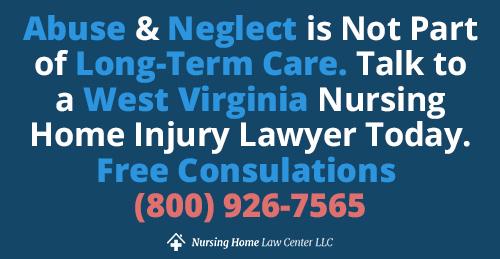
Contact a West Virginia Nursing Home Abuse Attorney Today!
At Nursing Home Law Center, we are dedicated to helping victims of nursing home abuse and their families secure fair compensation. We work tirelessly to hold negligent nursing homes accountable and ensure your loved one’s rights are protected.
If your elderly loved one has experienced abuse, neglect, or mistreatment in a West Virginia nursing home, don’t wait to take action. Our law firm offers a free case review, and we work on a contingency fee basis, so you pay nothing unless we win your case.
Call us at (800) 926-7565 or fill out our contact form to speak with a West Virginia nursing home abuse lawyer and take the first step toward justice for your loved family member.
References: [1] Medicare

